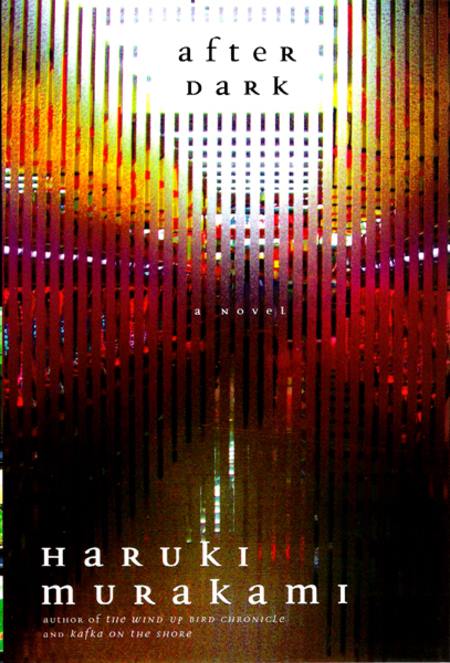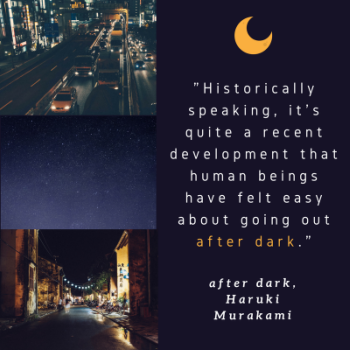After Dark

Adapted from: GoodReads
Curious about the Murakami-hype but unwilling to commit to the 600-page The Wind Up Bird Chronicles or the 900-page IQ84 trilogy – well, After Dark is the perfect Murakami starter. This novel feels like a YA version of Murakami; all the style and quirky characters in an accessible and small package. Also, the main character, Mari Asai is actually a teenager! Be warned, the novel does have heavy moments, but it’s really a great introduction to this iconic Japanese author.
Book breakdown
This entire book takes place over the course of one night, and portrays how the lives of individuals connect in subtle and/or unexpected ways. Mari Asai and Tetsuya Takahashi are the main characters, two quirky, if slightly aimless soul who find a lot to talk about despite having little in common. Through their discussions and interactions, Murakami paints a picture of their pasts, present and even hints at their future.

Contrary to what one might suppose about a 1-night novel, there are quite a few surprising plot points. The weaving together of multiple narratives also makes this book hard to put down. Flipping from a Denny’s to a love hotel, from a park to an office, from a bedroom to the world inside a tv recording, After Dark is an embodiment of the feeling of roaming around a city and your own thoughts late at night. This was a truly unique reading experience - Murakami seems to change his narration style depending on the narrative being recounted, even making the narrator feel like a cameraman at one point.
In my opinion
I really liked a lot of things about this book. It felt like a perfect blend of slice of life with a touch of magic realism making the reader question the limits of reality and the final meaning of the novel. But that is both fascinating and infuriating. The novel was very accessible, perhaps too much so; when I finished it, I was left with this sinking feeling that I had missed something major. But maybe that was Murakami’s intent, to leave the reader haunted by his novel?
Either way, I loved seeing these moments of association between the storylines, and the budding relation between Mari and Takahashi is especially sweet. The reader senses this second first meeting could not be a success had the first not been so unremarkable; in fact the mere concept of a “take 2” with such youthful characters is curious!
After Dark is a quick and easy read. Yet it alternated in gripping my interest and lulling my mind. The mix of short, simple sentences and longer, exceedingly wordy sentences was a bit jarring, and I wondered if this was a side effect of translation or an intentional stylistic choice…
Final thoughts
After Dark mentions a lot of music in the description of scenes, especially those between Mari and Takahashi. I wonder what it would be like to have complimented my reading with the songs mentioned in the book… it might have been a more immersive experience and offset those moments of disengagement that I experienced.
Have you ever to that music mentioned in a book while reading the passage is related to? What was it like?
